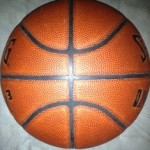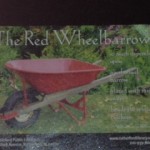After The Nets Come Down
I will step aside and give my father the floor, in a quick second. The NCAA title has been decided and it has always been a shared family passion. With alumni from UCONN, Duke, Michigan, and Boston College in the same family, there was a lot to root for, me being a Carnegie Mellon alumnus, I got to enjoy the best of all worlds. I did pile on with my Mom and Dad and took the Huskies into my heart. What follows is a reprint of an article my Dad wrote, that appeared in the New York Times, after the nets came down.
An Angel on His Shoulder at the Final Four
date: 04-04-99 New York Times
By GEORGE De GREGORIO
Going to the Final Four is quite an experience, especially if you start out without a ticket.
The notion of attending this extravaganza, held this year in St. Petersburg, Fla., came to me several months ago. It would have its advantages for me: My son Steve lives and works in the area, and I would stay with him and his family and enjoy the grandchildren. I also had hope and faith that the University of Connecticut basketball team, which I have cheered and supported for 47 years, could at last attain the charmed circle of the Final Four and even go on to win the national title.
Not having a ticket, of course, is quite daunting. And on top of that, how about not being able to get a flight to Florida because all seats seemed to be sold out? What did I expect on a weekend when the Final Four, college spring break and religious observances took place at the same time.
On Wednesday I decided to pack a bag and go by train, a 24-hour trip. I would scrounge a ticket by hook or by crook. I had a limited budget of crazy money in case I caved to the scalpers.
I was off on a one-man odyssey. Before it was over, it would give me an exhilarating emotional experience, a kismet-like dimension — that was not supposed to happen in this kind of environment.
I had asked around The New York Times to see if there were any tickets available. No luck there. One editor thought he might be able to make a contact, but that fizzled. He also asked a basketball reporter to keep an eye open in case something turned up.
With the Saturday, March 27, semifinals a couple of hours away, I still did not have a ticket. UConn-Ohio State was scheduled for 5:42 p.m. I had staked out a spot near the gate for the news media, hoping to bump into someone I knew who could help me. It was hot; temperatures were in the 80s. Sweat poured off me. “I need one,” I chanted, shooting one finger skyward.
At about 4 p.m., two familiar faces bounded toward me — two reporters in ties and jackets and ready to write about the games for The New York Times. They knew of my plight, but had not come up with anything.
“Stick in there,” they said. “Something is bound to come up.”
I had become a UConn fan when I was a student there. After I graduated in 1952, I became a sports reporter for The New Haven Register and was assigned the UConn beat. Like the current coach, Jim Calhoun, I and many other fans had endured the rap that UConn was good to watch but not able to clear one hurdle, the leap to the Final Four.
As I waited, I chatted with a young reporter from The Orlando Sentinel. At that moment, I realized that at my age — old enough to retire — I must have looked odd and amusing to the young woman. I thought: what am I doing out here in this blazing sun, acting like a homeless vagabond, trying to crash an event in which young men in the springtime of their lives were reaching for a dream of excellence in a sport I once played, however tentatively, in my own springtime? And I realized that yes, that was reason enough for going.
Suddenly I felt a tap on my left shoulder. I turned to see a lean, middle-aged man, wearing glasses and a gray cap with no insignia, standing behind me.
“Hi,” he said. “I guess you’re looking for a ticket. I’ve got an extra one you can have.”
“Yeah?” I said. “How much?”
“Nothing,” the man said. “You’ll be sitting next to me.”
“You sure I can’t pay you?” I said.
“You look like a fan. I don’t think you’ll try to sell it.”
I pointed to the turnstile at Gate 6. “I’m going right in now,” I said, trying to reassure him that I would indeed not sell the ticket. “I’ll see you in there,” he said.
I was so flabbergasted, I didn’t even look at the ticket to see if it was real or where the seat was situated.
I bought a hot dog and a soft drink and went to my seat — Section 314, Row R, Seat 24, on the aisle. I was way up there, but the view was unobstructed. I could see everything. On the scalpers’ listings, this one was going for $500.
Shortly before game time, the man arrived. Quiet and unassuming, he said he thought that of the four teams he would root for Michigan State, but he liked UConn’s chances. I asked him his name, but he refused to give it. I asked where he lived, and he refused to reveal that, too.
He was very savvy about the tactics and strategy of the games — the screening, the rebounding, the inside game, the press, the use of timeouts, fouling, and how it all might play out.
Between games, after UConn’s victory over Ohio State, I offered to buy refreshments. He refused. Again I offered to pay for the tickets. I asked for his name again, his address, his phone number. Each time he emphatically refused. “You’ll only send me money,” he said.
“This is a very unusual thing you’ve done,” I said. “Not many people would give these tickets away in this environment without seeking a big profit.”
“You’re a fan,” he said. “I know you wouldn’t sell it.”
He was the Anti-Scalper, the Anti-Profiteer. Maybe he got his kicks by standing firm in an age of fast-buck commercialism. He was taciturn, but I couldn’t call him strange or judge him. He might have thought the same about me, birds of a feather, and had picked me to receive his gift for that reason. Whatever, I was so engrossed in the UConn play and victory that I wound up hoarse.
At the end of the second game, when Duke beat Michigan State, he bounded into the crowd of more than 41,000, ignoring my pleas for information about him, and seemed to disappear.
The championship game was scheduled for 9:18 on Monday night. I was still clinging to my budget in case I had to yield to a scalper. This was one game I was not going to miss. At 6 p.m., I still did not have a ticket. UConn might become the national champion, and I might not see it happen.
I staked out the media entrance again. The same feeling I had had on Saturday came over me. The evening was cool. One fellow sported a sign reading: “Need One Ticket, Desperately. My Life Depends on It.” Panic time was setting in — surrender to the scalper or go watch it on TV.
Suddenly I felt a tap on my left shoulder. I turned to see the same lean, unassuming man with the gray cap staring at me. He was selling nothing.
“I’ve got an extra ticket again,” he said, recognizing me. “It’s yours if you want it.”
“You got to let me pay you this time,” I said.
“No way,” he said. “I know you won’t sell it because you’re a fan. I’ll see you up there.”
When he took his spot beside me — Section 314, Row R, Seat 23 — he seemed to want to say he would be noncommittal about which team he favored, but he was as engrossed as I was throughout by the exceptional play between UConn and the powerful Duke team.
“One of the best games I’ve seen,” he said.
I managed to get him to say he was from Miami, but his name, address, phone number, occupation, family remained private.
I was able to buy him a cup of Carvel ice cream at halftime. He reluctantly accepted it, and he seemed to enjoy it.
He did not stay for the post-game ceremony after UConn’s victory, disappearing into the crowd as he had done on Saturday night. He went out of my little odyssey as mysteriously as he had come into it.
I would like to think he was a true basketball fan, one who saw too much crass commercialism in an event and a game that he loved and respected, and he would not sell out. Maybe he wanted to share that with somebody, thereby coming to the rescue of a kindred spirit.
I wish I knew who he was, but does it really matter?



